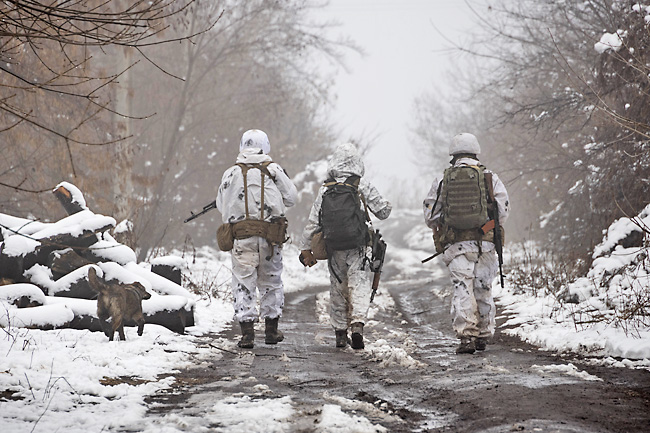WASHINGTON (AP) – The Pentagon ordered 8,500 troops on higher alert to potentially deploy to Europe as part of a NATO “response force” amid growing concern that Russia could soon make a military move on Ukraine. United States (US) President Joe Biden consulted with key European leaders, underscoring US solidarity with allies there.
Putting the US-based troops on heightened alert for Europe on Monday suggested diminishing hope that Russian President Vladimir Putin will back away from what Biden himself has said looks like a threat to invade neighbouring Ukraine.
At stake, beyond the future of Ukraine, is the credibility of a NATO alliance that is central to US defence strategy but that Putin views as a Cold War relic and a threat to Russian security. For Biden, the crisis represents a major test of his ability to forge a united allied stance against Putin.
Pentagon press secretary John Kirby said about 8,500 US-based troops are being put on alert for possible deployment – not to Ukraine but to NATO territory in Eastern Europe as part of an alliance force meant to signal a unified commitment to deter any wider Putin aggression.
Russia denies it is planning an invasion. It said Western accusations are merely a cover for NATO’s own planned provocations.

Recent days have seen high-stakes diplomacy that has failed to reach any breakthrough, and key players in the drama are making moves that suggest fear of imminent war.
Biden has sought to strike a balance between actions meant to deter Putin and those that might provide the Russian leader with an opening to use the huge force he has assembled at Ukraine’s border.
Biden held an 80-minute video call with several European leaders on the Russian military build-up and potential responses to an invasion.
“I had a very, very, very good meeting – total unanimity with all the European leaders,” Biden told reporters at the White House. “We’ll talk about it later.”
The White House said the leaders emphasised their desire for a diplomatic solution to the crisis but also discussed efforts to deter further Russian aggression, “including preparations to impose massive consequences and severe economic costs on Russia for such actions as well as to reinforce security on NATO’s eastern flank.”
A day earlier, the State Department had ordered the families of all American personnel at the US Embassy in Kyiv to leave the country, and it said that nonessential embassy staff could leave at US government expense.
Ukraine’s Foreign Ministry spokesman, Oleg Nikolenko, said that US decision was “a premature step” and a sign of “excessive caution.” He said Russia was sowing panic among Ukrainians and foreigners to destabilize Ukraine.
Britain said it, too, was withdrawing some diplomats and dependents from its Kyiv Embassy. Prime Minister Boris Johnson said an invasion was not inevitable but “the intelligence is pretty gloomy.”
Ordering even a modest number of American troops to be ready for potential deployment to Europe is meant to demonstrate US resolve to support its NATO allies, particularly those in Eastern Europe who feel threatened by Russia and worry that Putin could put them in his crosshairs.
“What this is about is reassurance to our NATO allies,” Kirby told a Pentagon news conference, adding that no troops are intended for deployment to Ukraine, which is not a member of the alliance but has been assured by Washington of continued US political support and arms supplies.
The Pentagon’s move, which was done at Biden’s direction and on Defence Secretary Lloyd Austin’s recommendation, is being made in tandem with actions by other NATO member governments to bolster a defensive presence in Eastern European nations.
Denmark, for example, is sending a frigate and F-16 warplanes to Lithuania; Spain is sending four fighter jets to Bulgaria and three ships to the Black Sea to join NATO naval forces, and France stands ready to send troops to Romania.
In a statement prior to Kirby’s announcement, NATO said the Netherlands plans to send two F-35 fighter aircraft to Bulgaria in April and is putting a ship and land-based units on standby for NATO’s Response Force.
NATO has not made a decision to activate the Response Force, which consists of about 40,000 troops from multiple nations.





